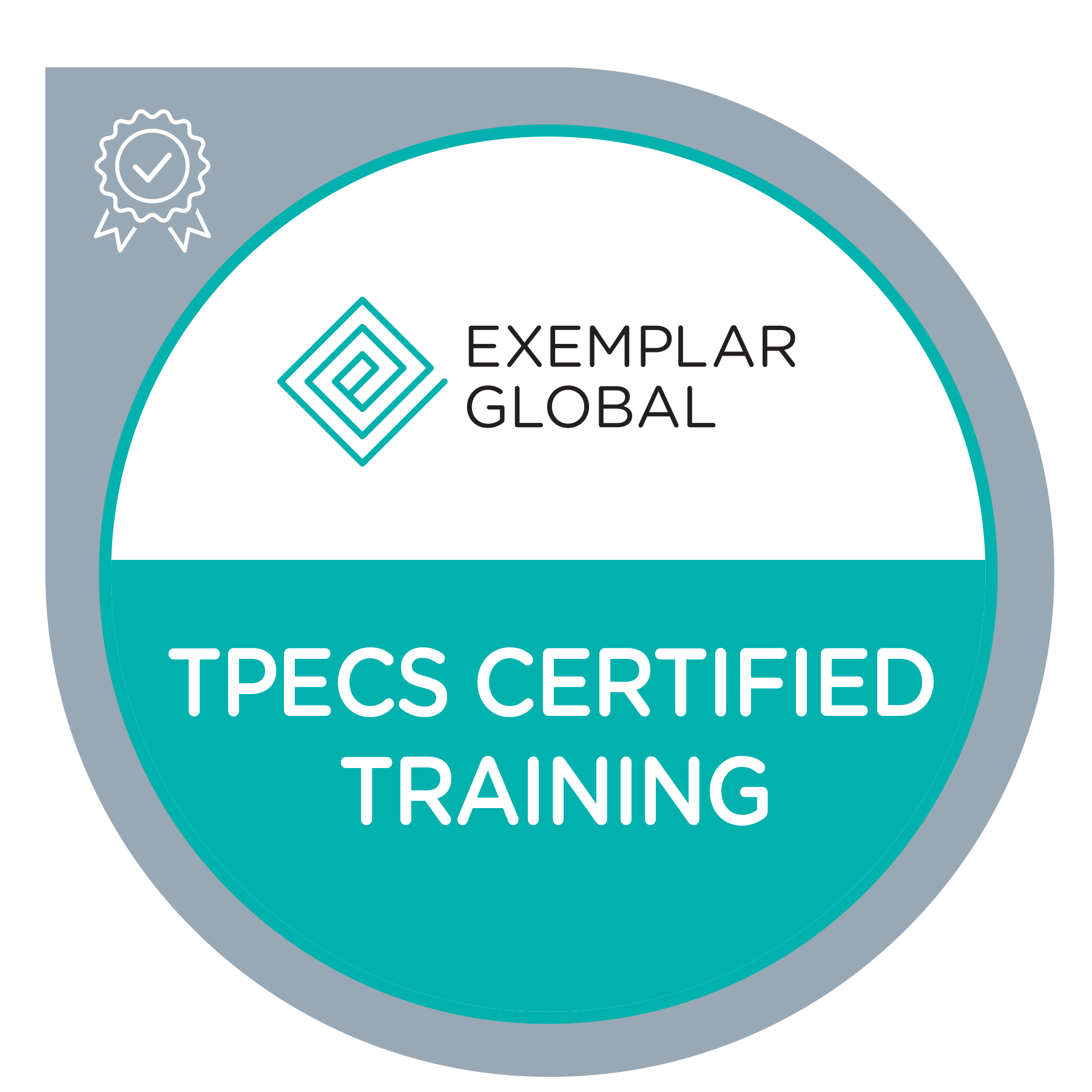

How has IATF 16949:2009 changed?
The new Automotive Quality Management System requirements have been rebranded as IATF 16949:2016 (formerly ISO/TS 16949:2009). Although the ISO 9001 requirements have been removed from IATF 16949:2016 and are published as a separate ISO standard, IATF 16949 is not a stand-alone standard and must be used in conjunction with ISO 9001.
Therefore, Axeon offers courses that cover both ISO 9001:2015 and IATF 16949
OverviewThe automotive industry demands rigorous quality standards, and organizations certified to IATF 16949:2016 must ensure their auditors are prepared to meet those expectations. Effective auditing is essential for maintaining compliance, managing risk, and driving performance across the supply chain. This dynamic, five-day live-online ISO 9001 & IATF 16949 Lead Auditor Training prepares you to conduct, manage, and lead audits to both standards with confidence. Recognized by Exemplar Global, the course covers key requirements of ISO 9001:2015 and IATF 16949:2016, including Core Tools and Customer-Specific Requirements, while aligning with ISO 19011 audit guidelines. Led by experienced instructors, you’ll explore each phase of the audit process, including:
Through interactive exercises, case studies, and role-playing scenarios, you’ll build the skills and confidence needed to perform high-value audits in automotive and manufacturing environments, all from the convenience of a live-online setting. |
PrerequisitesThere are no required prerequisites for this training. This ISO 9001 & IATF 16949 lead auditor training course is beneficial for both quality novices and lifetime professionals. All students are required to bring their own printed copy of the ISO 9001:2015 standard. This will not be provided by Axeon, but most students will be able to obtain a copy from their company. |
 |
Who Should Attend
|
| Axeon is an Exemplar Global Certified Training Provider.
Attendees successfully completing the examinations provided in conjunction with this course receive a Certificate of Attainment for these Exemplar Global knowledge competency units: |
 |
The Certificate of Attainment provides evidence of knowledge competency defined by Exemplar Global for certification as a Quality Management Systems Lead Auditor.
Even though ISO 9001 is used as the model for teaching systems and audit, this course enables students to develop and apply auditing skills using any applicable management system standard.
Successful completion of this course’s examinations satisfies the training requirements for certification by Exemplar Global as a lead auditor.
| In-Person ISO 9001 Lead Auditor Training | IATF 16949 & ISO 9001 Internal Auditor Training | IATF 16949 Lead Auditor (TS 16949) Training | Automotive Core Tools Training |
OverviewThe automotive industry relies on strong internal audit programs to maintain IATF 16949:2016 and ISO 9001:2015 certification, meet customer expectations, and improve quality system performance. Well-trained internal auditors are essential to meet these demands. This engaging, four-day ISO 9001 & IATF 16949 Auditor Training for internal auditors prepares you to conduct internal audits with confidence and competence. Recognized by Exemplar Global, the course covers the key requirements of both ISO 9001:2015 and IATF 16949:2016 and aligns with the ISO 19011 auditing guidelines. Led by experienced instructors, you’ll walk through each step of the internal audit process, including:
Interactive case studies, group exercises, and audit simulations give you hands-on practice applying your knowledge to realistic audit situations. Whether you’re new to internal auditing or looking to build on your experience, this ISO 9001 and IATF 16949 auditor training course will strengthen your skills and enhance your value to your organization. |
PrerequisitesThere are no required prerequisites for this ISO 9001 and IATF 16949 auditor training. This ISO 9001 & IATF 16949 auditor training course is beneficial for both quality novices and lifetime professionals. All students are required to bring their own printed copy of the ISO 9001:2015 standard and IATF 16949:2016 standard. These standards will not be provided by Axeon, but most students will be able to obtain a copy from their company. |
 |
Who Should Attend
|
| Axeon is an Exemplar Global Certified Training Provider.
Attendees successfully completing the examinations provided in conjunction with this course receive a Certificate of Attainment for these Exemplar Global knowledge competency units: |
 |
The Certificate of Attainment provides evidence of knowledge competency defined by Exemplar Global for certification as a Quality Management Systems Lead Auditor.
Even though ISO 9001 is used as the model for teaching systems and audit, this course enables students to develop and apply auditing skills using any applicable management system standard.
| In-Person ISO 9001 Lead Auditor Training | IATF 16949 & ISO 9001 Lead Auditor Training | IATF 16949 Lead Auditor (TS 16949) Training | Automotive Core Tools Training |
OverviewThe automotive industry demands suppliers who can consistently deliver high-quality products, meet strict customer requirements, and comply with global standards. IATF 16949:2016 builds on ISO 9001:2015 with additional requirements specific to automotive manufacturing, and organizations need skilled auditors who can verify compliance, drive performance, and support continuous improvement. This interactive, five-day IATF 16949 Lead Auditor Training equips you with the knowledge and practical skills to audit automotive Quality Management Systems using a process-based approach. You will learn how to plan, conduct, report, and follow up on audits in alignment with ISO 19011 auditing guidelines, while gaining the confidence to lead audit teams effectively. Throughout the course, experienced instructors will guide you through real-world scenarios that link core tools, Customer-Specific Requirements, and risk-based thinking to the audit process. Group exercises, automotive case studies, and breakout activities reinforce learning and strengthen your auditing abilities. By the end of this program, you will be able to:
Whether you are preparing for certification audits or enhancing internal audit capabilities, this course provides the essential skills needed to support compliance and improve quality throughout the automotive supply chain. |
PrerequisitesWe recommend that students have an understanding of both ISO 9001 and IATF 16949 and/or work experience in applying IATF 16949. This requirement is to help ensure the student’s success in the course and ability to utilize the material. It is also necessary to have copies of the current IATF 16949 and ISO 9001 standards. These will not be provided. |
 |
Who Should Attend
|
| Axeon is an Exemplar Global Certified Training Provider.
Attendees successfully completing the examinations provided in conjunction with this course receive a Certificate of Attainment for these Exemplar Global knowledge competency units: |
 |
The Certificate of Attainment provides evidence of knowledge competency defined by Exemplar Global for certification as a Quality Management Systems Lead Auditor.
This course is offered in partnership with Omnex.
| IATF 16949 & ISO 9001 Internal Auditor Training | In-Person ISO 9001 Lead Auditor Training | Automotive Core Tools Training | VDA 6.3 Process Auditor Training |
OverviewThe automotive industry operates under some of the most demanding quality and compliance standards in the world, and organizations certified to IATF 16949:2016 are expected to demonstrate a high level of auditor competence, particularly in the application of Automotive Core Tools. These tools are essential for ensuring product quality, preventing defects, and maintaining consistent performance across the supply chain. To meet these expectations, auditors must be capable of evaluating not just whether Core Tools are in place, but whether they are being effectively implemented and sustained in real-world scenarios. This intensive two-day course equips quality professionals, process auditors, and those preparing for VDA 6.3 or IATF 16949 audits with practical skills and knowledge to assess the correct and effective use of the Automotive Core Tools. Participants will explore audit situations commonly encountered in manufacturing environments, with a focus on APQP, PPAP (VDA 2), FMEA, MSA (VDA 5), SPC (including Ppk, Cpk, Cmk), and 8D problem solving. Through a combination of technical instruction, group work, and case-based exercises, attendees will learn to identify issues, evaluate effectiveness, and add value during internal or supplier audits. Whether you are seeking to deepen your understanding of automotive quality methods, renew your VDA 6.3 Process Auditor qualification, or enhance your audit readiness, this course offers targeted, real-world training aligned with IATF 16949 requirements. Led by experienced instructors, it emphasizes practical application, critical thinking, and efficiency, giving you the tools to conduct high-impact audits that drive quality performance throughout your organization. |
PrerequisitesThere is course requires basic knowledge about Automotive Core Tools. This course also requires qualification as IATF and/or VDA6.3 Internal Auditors. This training is aimed at qualified IATF and/or VDA 6.3 auditors seeking additional qualifications or update of qualifications. |
 |
Who Should Attend
|
| ISO 9001:2015 & IATF 16949:2016 Lead Auditor Training | IATF 16949 & ISO 9001 Internal Auditor Training | IATF 16949 Lead Auditor (TS 16949) Training | VDA 6.3 Process Auditor Training |
Days: 4
Learning Objectives:
Based on the ISO 9001 process approach, the basis of IATF 16949 and its specific customer requirements, this 4-day training provides the basis for VDA 6.3 process auditors. The introduction to basic audit techniques includes general requirements, methods, principles and risk analysis. This introduction enables the trainee to understand correlations and to apply and implement the correct chain of activities during the audit. These steps will guide the trainee through the general requirements of process audits and will enable the trainee to take a holistic approach to the Automotive Industry.
This training also enables the trainee to apply requirements P1 to P7 of the VDA 6.3 questionnaire through the supply chain, based on the respective interpretation and practical examples. The purpose of this training is to provide training to conduct process audits through the supply chain, the ability to identify risks and determine the potential of new suppliers. This approach is applied to the correction, stabilization and improvement of processes and is presented through exercises and examples. The aim is to ensure a robust assessment.
1. Quality Systems, Application and Benefits for Process Audits (ISO 9001, IATF 16949).
2. Quality Management Methods (Approval of Initial Samples, Control Plans, Quality Plans, Risk Analysis [FMEA,…], Problem Solving Methods,…).
3. Risk Analysis with the “Turtle” Method.
4. Communication, Ethics and Code of Conduct.
5. Customer requirements and their interpretation (VDA requirements, customer-specific requirements [CSR, …]).
6. Steps of Process-oriented Auditing (from preparation to implementation).
7. Planning and Conducting the Process Audit.
8. Preparation of the Audit. Adding GD&T to a Design
9. Application of the respective questionnaires, including Potential Analysis.
10. Complement the Questionnaire through the Audit Preparation.
11. Client Requirements and their Interpretation (VDA Requirements, Client Specific Requirements [CSR,…]).
12. Evaluation and Evaluation Rules.
13. Documentation and Conclusion.
Days: 1
Time: 7:30 AM-4:30 PM MST
Audience: Top management
A QMS (Quality Management System) is NOT a cost of doing business. It’s an investment. And top management should expect to get a financial return on that investment. However, the Return On Investment (ROI) they receive will be greatly impacted by the level of leadership and commitment they provide concerning the management system.
The newest versions of most ISO management standards have amplified the requirements for top management, in accordance with ISO 9001:2015. In this highly interactive course, senior managers will learn how to fulfill their new responsibilities, take accountability, and maximize the ROI they get from their management systems.
This class will help to show the true value of your quality management system and how much it really adds to your bottom line. It will also help your company to increase the ROI of your QMS.
If you want to improve your company’s bottom line or show your boss how much your QMS is already contributing to profits then this class is for you.
Benefits of a Quality Management System
Overview of Quality Principles
How to Maximize the ROI from your QMS
The Five Biggest Mistakes Executives Make with Quality Management
Final Test
February 27, 2026 | 12:00-1:00 PM MST | 2:00-3:00 EST
Register Now